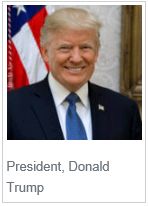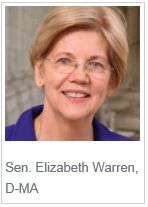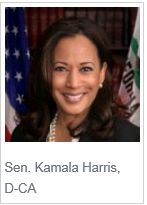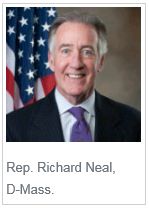Fresh-from-the-campaign idealism will collide with old-fashioned partisanship on Capitol Hill today as more than 100 first-time lawmakers are sworn in and the 116th Congress is gaveled into session.
As if Republicans and Democrats needed more reasons to fuel the partisan standoff that has dominated Washington in recent years and led to the current partial government shutdown, several inflection points in 2019 are likely to drive the parties even further apart and make already long shot bids at consensus more remote.
 First, special counsel Robert Mueller
faces an effective deadline of this fall to wrap up his
investigation of Russian meddling in the 2016 presidential
campaign. Exactly when Mueller will complete his probe and report
any findings isn't known, and it could be sooner than the
fall.
First, special counsel Robert Mueller
faces an effective deadline of this fall to wrap up his
investigation of Russian meddling in the 2016 presidential
campaign. Exactly when Mueller will complete his probe and report
any findings isn't known, and it could be sooner than the
fall.
But Justice Department guidelines provide at least one potential clue for Mueller's timeline. It's been longstanding department practice not to take significant prosecutorial actions against elected officials within 60 days of an election.
Iowa's presidential caucus is scheduled for Feb. 3, 2020, with New Hampshire's first-in-the-nation primary to follow a few days later. But California moved its primary up to March 3, 2020 – with vote-by-mail scheduled to begin on the same day as Iowa's caucus.
Because of California's delegate-rich status, minority
populations and outsized role, Democrats could choose to
concentrate their campaigns there instead of the traditional Iowa and New Hampshire, whose voters tend to
be more white and older than most voters nationally. That could
pressure New Hampshire – whose state law requires that it hold the nation's
first primary – to move up its voting. 
For Mueller, that could mean he has an effective deadline of this fall to complete his investigation in order to comply with the Justice Department's 60-day guideline. Whenever Mueller wraps up his probe, it will be a political detonation in Washington, with legislative activity on Capitol Hill grinding to a halt amid the fallout. Absent Mueller effectively absolving President Donald Trump and his family, congressional Democrats are likely to pounce on any findings of alleged wrongdoing, making efforts at bipartisanship over policy all but impossible.
Second, the Democrats' own political calendar also will undermine efforts at bipartisanship.
Democrats running for president will kick off a series of debates beginning in June – only six months from now – with additional debates scheduled monthly throughout the primary election season. Democrats have agreed to at least 12 debates, but there could be twice that many or even more.
With dozens of Democrats eyeing potential campaigns, the party said it would hold debates on back-to-back nights beginning in June to break up the crowded field. That means Democrats – each vying for the media's attention and primary voters' affection – will be incentivized to one-up each other in their attacks on Trump. Calling for bipartisanship on, say, infrastructure or prescription drug prices won't work when 77 percent of Democrats who voted in the November midterm elections want Trump impeached.
 Further undermining efforts at
bipartisanship, many potential Democratic presidential candidates
are currently serving in Congress, including Reps. Tulsi Gabbard
of Hawaii and John Delaney of Maryland, and Sens. Elizabeth
Warren of Massachusetts, Bernie
Sanders of Vermont, Cory Booker of New Jersey, Kamala Harris of California, Sherrod
Brown of Ohio and Kirsten Gillibrand of New York.
Further undermining efforts at
bipartisanship, many potential Democratic presidential candidates
are currently serving in Congress, including Reps. Tulsi Gabbard
of Hawaii and John Delaney of Maryland, and Sens. Elizabeth
Warren of Massachusetts, Bernie
Sanders of Vermont, Cory Booker of New Jersey, Kamala Harris of California, Sherrod
Brown of Ohio and Kirsten Gillibrand of New York.
 These Democrats don't want to vote
for bipartisan legislation. They want to prove their progressive
bona fides by fighting Trump and pushing liberal policies that no
congressional Republican could likely support.
These Democrats don't want to vote
for bipartisan legislation. They want to prove their progressive
bona fides by fighting Trump and pushing liberal policies that no
congressional Republican could likely support.
Finally, although House Democrats are gearing up for subpoena-driven investigations spanning dozens of Trump administration policy actions and personnel decisions, at least one probe will strike at Trump personally – his federal tax returns. Those documents will be a window into Trump's family business operations, including income, loans, investments and potential foreign entanglements that Trump has so far shielded from public disclosure.
 A 1924 law allows the chairmen of Congress'
tax-writing committees to request access to any person's tax
return, including a president's. Rep. Richard
Neal, D-Mass., the incoming chairman of the Ways and Means
Committee, said he would use that law to demand access to Trump's tax returns.
(Neal's spokesman said this week that Neal may delay requesting
the returns while he tries to build political consensus.)
A 1924 law allows the chairmen of Congress'
tax-writing committees to request access to any person's tax
return, including a president's. Rep. Richard
Neal, D-Mass., the incoming chairman of the Ways and Means
Committee, said he would use that law to demand access to Trump's tax returns.
(Neal's spokesman said this week that Neal may delay requesting
the returns while he tries to build political consensus.)
Trump has called Democrats' investigations "presidential harassment," and he threatened to declassify and release government documents that would expose private information on Democrats.
"They can play that game," Trump said of the coming House Democrats' investigations, "but we can play it better."
As the new session of Congress begins amid some lawmakers in both parties calling for renewed efforts at bipartisanship, Democrats' overall political interests of battling with Trump don't align with seeking policy consensus. And Trump isn't likely to be in any mood to reconcile legislative differences with Democrats as they issue subpoenas to his administration and investigate his businesses and family members.
That doesn't mean nothing will happen on Capitol Hill in 2019. House Democrats will advance legislation on taxes, healthcare, energy and more in order to tee up future debates. Senate Republicans will likely do the same.
But what gets approved by both chambers and sent to the White House for Trump's signature will likely be noncontroversial legislation. The big policy debates will be just that – debates, which are unlikely to produce bipartisan policy achievements.
The content of this article is intended to provide a general guide to the subject matter. Specialist advice should be sought about your specific circumstances.
